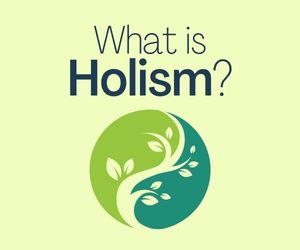The word “holistic” comes from the Greek word “holos,” which means “whole” or “complete.” The concept of holism, or the idea that things should be viewed as a whole rather than as a sum of parts, has been present in various forms throughout history.
In the early 20th century, the term “holistic” was popularized by the South African philosopher Jan Smuts, who used it to describe his vision of a unified view of nature and humanity. He believed that everything in the universe was interconnected and that a holistic approach was necessary to truly understand the world and its complexities.
Today, the term “holistic” is often used to describe a broad approach to health and wellness that considers the whole person – body, mind, and spirit – rather than just their symptoms. This approach emphasizes the interconnectedness of various aspects of a person’s life and seeks to address the root causes of health issues rather than just treating the symptoms.
Hollistic meaning and etymology



